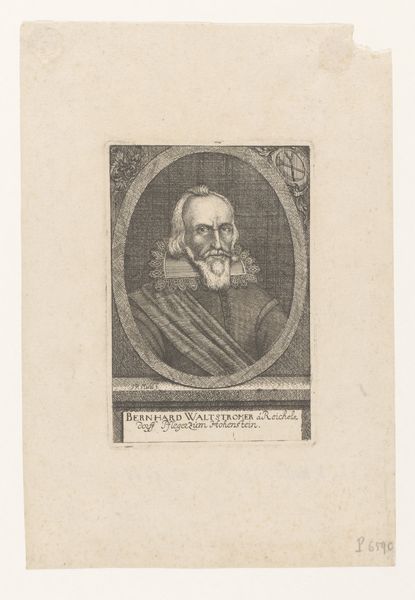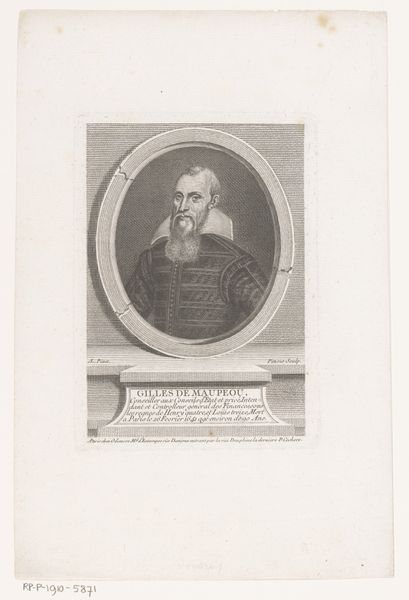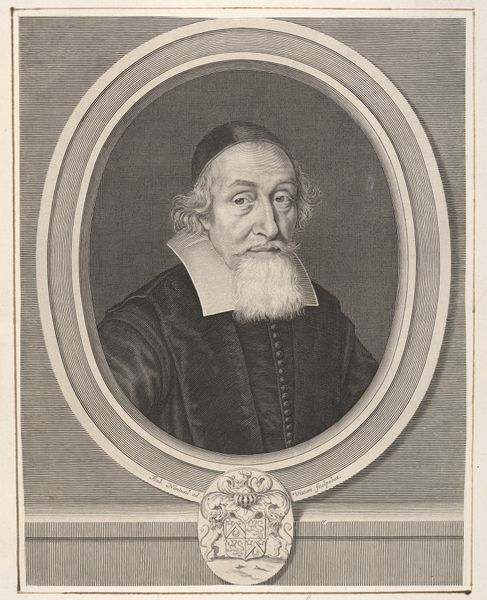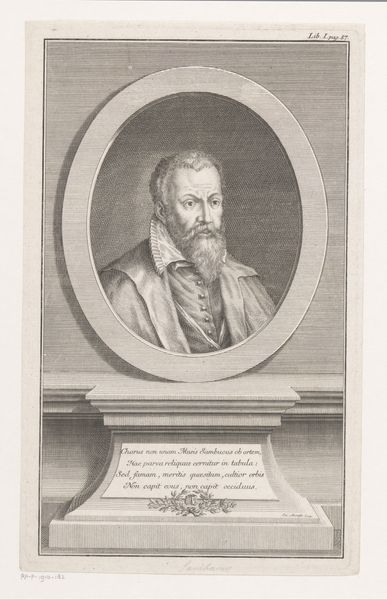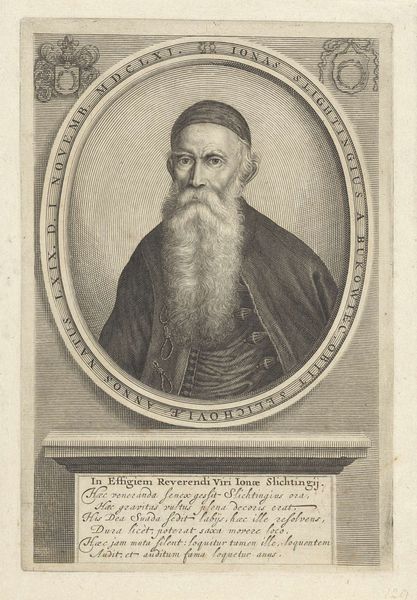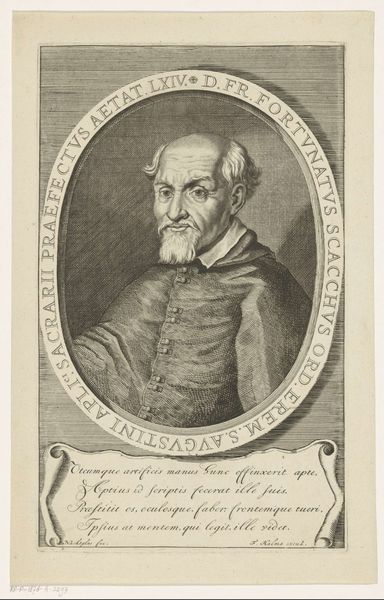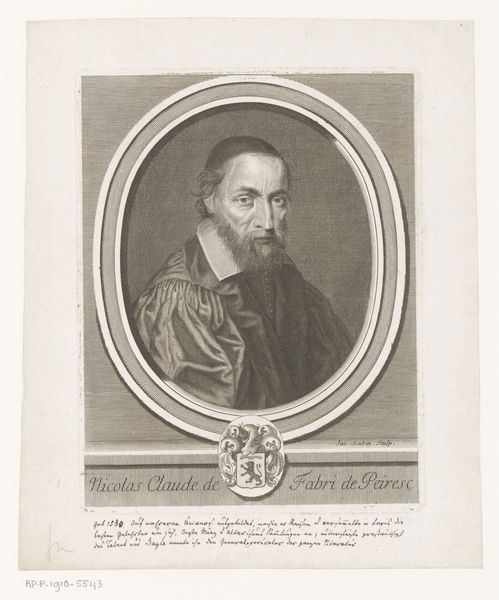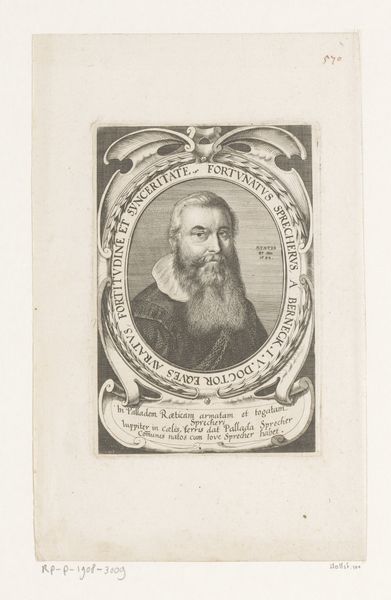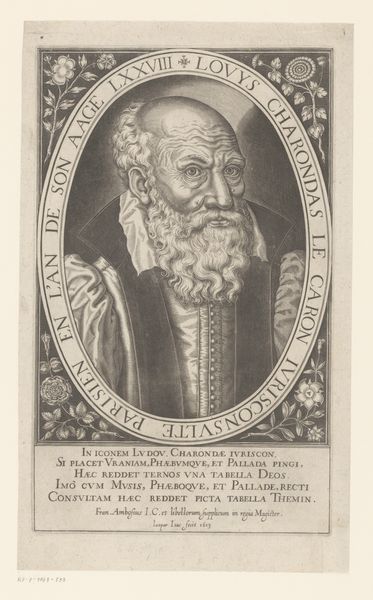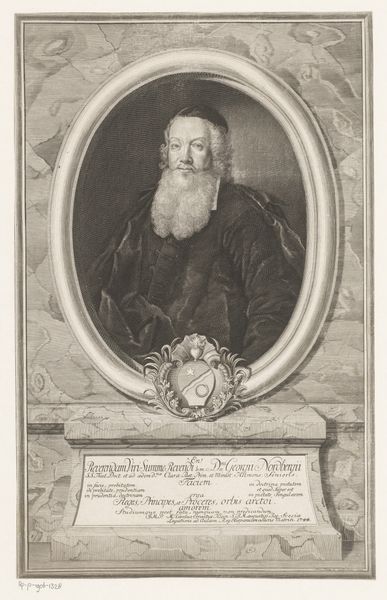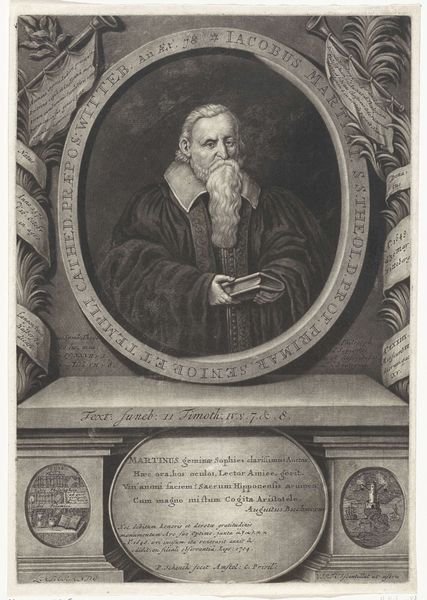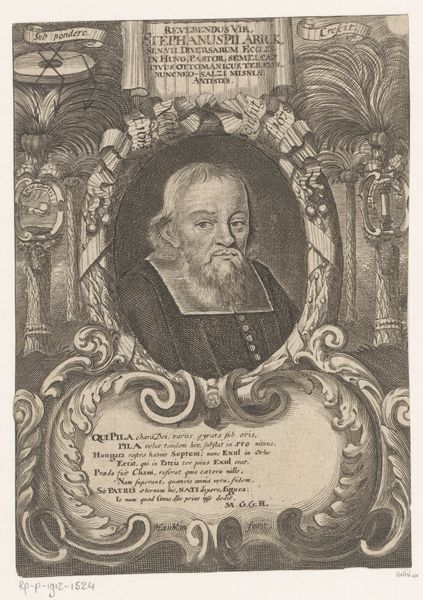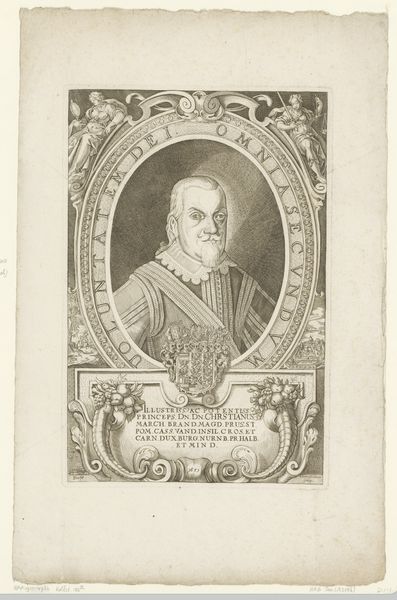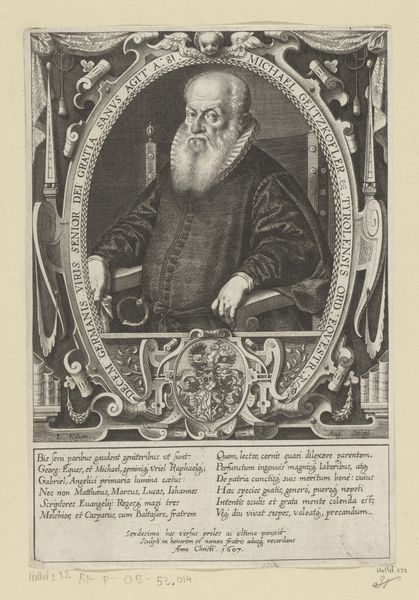
metal, engraving
#
portrait
#
baroque
#
metal
#
old engraving style
#
form
#
line
#
history-painting
#
academic-art
#
engraving
Dimensions: height 145 mm, width 107 mm
Copyright: Rijks Museum: Open Domain
Editor: Here we have Johann Alexander Böner's "Portret van Jobst Tetzel," an engraving dating from 1657 to 1720. The detail is quite striking. I’m fascinated by the intricate lines used to create form. How do you interpret this work, focusing on its formal qualities? Curator: Indeed. Let's consider the use of line, the foundation of this print. Observe the meticulous cross-hatching that Böner employs to generate tonal variation. What is the effect of this careful arrangement of lines on the perception of depth and texture? Editor: It gives a very tactile feeling, particularly in the rendering of the beard and the folds of his clothing. The way the lines follow the contours creates a sense of volume. It almost looks three-dimensional. Curator: Precisely. Note also the ornamental frame surrounding the portrait. The symmetry is Baroque. This contrasting play between the organic portrait and geometric forms enhance the reading, a structural balance achieved with expert formal control. Consider the engraving process itself – the intentionality required. Is it not fascinating how each mark is decisive and irreversible? Editor: Absolutely. The precision is astounding, and the fact that any error would be difficult to correct. It emphasizes the importance of planning and control within the artistic process. The contrast of dark and light adds dramatic weight to the Senator. Curator: The balance within the artwork shows how it provides insights to the technique of the time, doesn't it? The engraving embodies structured Baroque principles through the intrinsic, immutable aspects. Editor: Yes, viewing the piece using form offers insight. Thanks.
Comments
No comments
Be the first to comment and join the conversation on the ultimate creative platform.
